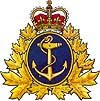
This following article comes from the online pages of Karachi's DAWN Newspaper:
The grand debate
By Mohammad Waseem
Wednesday, 29 Apr, 2009 09:29 AM PST
"Currently the people of Pakistan are operating like the blind men who tried to make sense of an elephant by touching different parts of its body and then reached different conclusions about the beast. Where militancy is concerned, a nationwide debate revolves around basically two sets of positions.
One is that the Taliban are (slightly or massively) overzealous about the implementation of what is dear to believing Muslims and that they should be treated as good boys gone berserk — deserving of accommodation and affection. The second position is that the Taliban are thugs, devoid of all compassion for humanity, ruthless in their style of operation and destructive in nature vis-à-vis the legal, institutional, cultural, economic and political order of society.
The first position reflects the thought patterns of increasingly conservative and radicalised sections of the public. Those who comprise this group range from the educated, commercial and professional middle classes to the ‘de-peasantised’, urbanised and, in other ways, mobilised social strata. They have a dichotomous world view based on a contradiction between Islam and the West. The US is characterised as the big bully out to destroy Islam all over the world. This view focuses on victimhood in terms of a clash of faith-based civilisations.
Any partnership with the Americans is deeply suspect in their view. After all Americans are aliens (and Christians) while the Taliban are ‘ours’ (and Muslims). Aren’t Americans friends of Israel and India, the two most poignant symbols of the grand Judeo-Hindu conspiracy against the Islamic world? Don’t US drone attacks violate the sovereignty of Pakistan? Aren’t counter-terrorist operations against the Taliban, such as in Fata, and against proto-Taliban groups, such as the female students of the Lal Masjid madressah in Islamabad, deserving of strong condemnation?
‘Rightist’ intellectuals and politicians, retired generals, bureaucrats, and diplomats and Islamists of various shades express their sincere opinion that the agreement with the Taliban in Swat should be given a ‘chance’. Their critics point to the fact that five to six weeks of Taliban rule have destroyed state institutions in the area and has led to women being denied access to education at all levels and being barred from visiting markets, even from stepping outside their homes. They say that a harsh regime of crime and punishment has been established leading to incidents such as hanging a bullet-ridden dead body from a pole and flogging a 17-year old girl.
Middle-class apologetics and defenders of the Taliban jeer at the ‘liberals’, who are accused of following a western, secular and alien agenda. However, they have their own dilemma of supporting the Taliban on the one hand and practising ‘liberalism’ on the other by not imposing purdah on their womenfolk and allowing them to study at coeducational schools, colleges, universities and pursuing a profession thereafter. They also send their children to the ‘infidel’ West for study and work and operate through an interest-based banking and export/import regime.
Their exit strategy lies in the argument that the Taliban should be allowed to have what they want in their own area and not in ‘our’ cities; they have no relevance or power to implement their brand of Islam at the all-Pakistan level and they lack exposure to the modern ‘civilised’ world but would learn if given a chance. Of course, the Taliban find the views of their mainstream ‘supporters’ demeaning and patronising, if not downright racist. At the other end of the spectrum, there are those classified as liberals. They see in the Taliban the Narodniks, anti-modern elements in czarist Russia, who erected roadblocks on the road to modernisation but were eventually thrown into the dustbin of history. They think that the whole approach of giving a chance to the Taliban is tantamount to surrendering the nation’s sovereignty to perpetrators of barbaric acts of terrorism.
These ‘liberals’ find it extremely frustrating that capitulation to non-state actors as a consequence of the lack of will or capacity of the state apparatuses to act in Swat was termed as peace. They find a whole series of acts and ideas unbelievably medieval and therefore unacceptable. These include the burning of video shops, barring female patients from being examined by male doctors, stopping the administration of polio drops that are deemed un-Islamic to children, preventing access to lawyers and destroying the institution of magistracy as a mechanism of holding the hands of the oppressive state machinery.
The liberal sections of society condemn the insular vision of potential and actual supporters of the Taliban. They feel that the current wave of Islamic radicalism can destroy whatever has been achieved in the last 200 years: technological advancements after the industrial revolution, economic liberalisation, constitutionalism, parliamentarianism and federalism, the function of the legal-institutional mechanism to stop social violence, a non-arbitrary form of government and majoritarian democracy.
The liberals argue that the nation must outgrow its siege mentality, which has been operating as an all-encompassing deadly insecurity syndrome. Masochism pervades all around, which is incommensurate with the relatively middle-power status of Pakistan in the Third World. The more the liberals seek to go beyond xenophobia and join the ranks of the world’s forward-looking nations, the more they are criticised for pursuing an American agenda.
Samson-like, the nation is headed for disaster. It sees conspiracy round every corner and traces this to the world hegemon. Liberals are alleged to be American agents by conservatives as are the MQM by the religious parties, in-service generals by retired generals, President Zardari and Gen Kayani by the likes of Imran Khan and so on.
Should deals struck with the Taliban under the shadow of the gun have been allowed to materialise in the first place? Should the law-enforcement agencies and the state’s various security apparatuses ever have surrendered what is proudly claimed to be sacred national territory? Should Pakistan have avoided the diplomatic crisis which its actions have led to in world capitals? During the following weeks and months, these questions will continue to form part of a grand debate throughout the length and breadth of the country."
I will give this author points for being so optimistic as to give his country months, before they are incinerated in a cleansing, nuclear apocalypse. Does he really think they have that long...?
One of two scenarios will play out, there is no other choice.
1) The Taliban will take over Pakistan, seize and use it's nuclear arsenal against the West (the US, India and Israel), or
2) The West and/or it's allies will conduct a pre-emptive strike on Pakistan, temporarily removing the threat of a Muslim Extremist first-strike on them.
Either way, I don't think I'd want to be an odds-taker on this one.
Yet another article reads:
Dir operation
Dawn Editorial Tuesday, 28 Apr, 2009 08:15 AM PST
The point of no return could be crossed in the near future if the Taliban are not subjected to decisive and telling action. The government dithered and the army stayed its hand even as the militants who want nothing less than the state’s overthrow flexed their muscles and moved from Swat to Buner and then into Shangla. They have now agreed to withdraw from Buner, but not without conducting a huge recruitment drive that ensured that the district would remain under the control of ‘local’ Taliban.
Pakistan is ceding territory by the day and anyone who thinks that the Taliban advance can somehow be confined to ‘that’ part of the country is sadly mistaken. These barbarians cannot be confined. We have tried buying time from a position of weakness and been witness to the results. Every single ‘deal’, and there have been many of them, has only allowed the Taliban to regroup and prepare for fresh assaults against the federation. It has to be acknowledged once and for all that the Taliban are the single biggest enemy the country has ever faced since 1947.
The supposedly secular ANP has let Pakistan and the NWFP down with a thud, and the religio-political parties have made it clear, yet again, where their sympathies lie. The security forces did well to take on the Taliban in Lower Dir on Sunday. Let’s not ask at this stage why they didn’t act earlier. It is said that they moved against the militants following requests to do so by local elders and the provincial government. It is also a fact that the operation was launched after security forces came under fire.
Can we argue then that the response was more reactive than proactive? Welcome as it is, the operation in Dir may also strengthen the impression that the military cracks down hard only when its own are attacked. Taliban violence against civilians is largely ignored for some reason. The army chief said the other day that the military would drive back the Taliban if they made any further inroads. Why just ‘drive back’? These people are merciless and have no qualms about indulging in savagery.
It can only be hoped that the operation in Dir is not a one-off move aimed at countering western criticism of Pakistani inaction. To be successful, it has to be part of a wider strategy of taking on the Taliban with all the force the military commands. Tribesmen who opposed the Taliban have been losing heart ever since the Swat deal. They thought the government was on their side, and acted accordingly. They are now running scared. A clear message needs to be sent that the government, the army and the people of Pakistan are all on the same page.

























